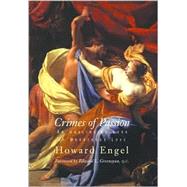
Howard Engel is the author of the best-selling Lord High Executioner: An Unashamed Look at the Hangman, Headsmen and Their Kind and the celebrated Benny Cooperman mysteries. He has received the prestigious Arthur Ellis Award for Crime Fiction and the Crime Writers of Canada Derrick Murdoch Award. As well as being an accomplished author, Engel is a regular contributor to the book pages of several journals. He lives in Toronto.
| Acknowledgments | 10 | (1) | |||
| Foreword | 11 | (4) | |||
| Introduction | 15 | (12) | |||
|
27 | (14) | |||
|
|||||
|
41 | (14) | |||
|
|||||
|
|||||
|
55 | (20) | |||
|
|||||
|
|||||
|
|||||
|
75 | (34) | |||
|
|||||
|
|||||
|
|||||
|
90 | (19) | |||
|
109 | (41) | |||
|
|||||
|
|||||
|
130 | (20) | |||
|
150 | (11) | |||
|
|||||
|
|||||
|
|||||
|
161 | (10) | |||
|
|||||
|
|||||
|
171 | (11) | |||
|
|||||
|
|||||
|
182 | (23) | |||
|
|||||
|
|||||
|
|||||
|
|||||
|
|||||
|
|||||
|
|||||
|
|||||
|
205 | (14) | |||
|
|||||
|
|||||
|
|||||
|
|||||
|
|||||
|
|||||
| Epilogue | 219 | (2) | |||
| Notes | 221 | (8) | |||
| Bibliography | 229 | (6) | |||
| Index | 235 |
The New copy of this book will include any supplemental materials advertised. Please check the title of the book to determine if it should include any access cards, study guides, lab manuals, CDs, etc.
The Used, Rental and eBook copies of this book are not guaranteed to include any supplemental materials. Typically, only the book itself is included. This is true even if the title states it includes any access cards, study guides, lab manuals, CDs, etc.